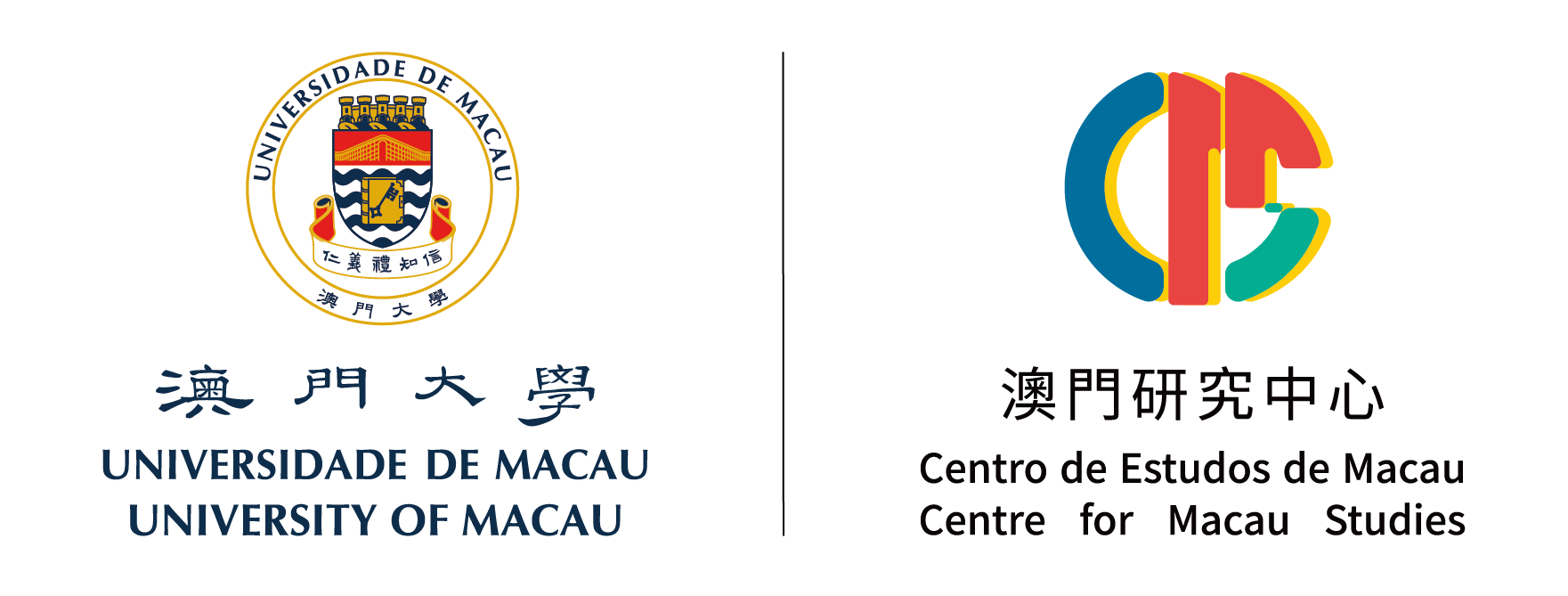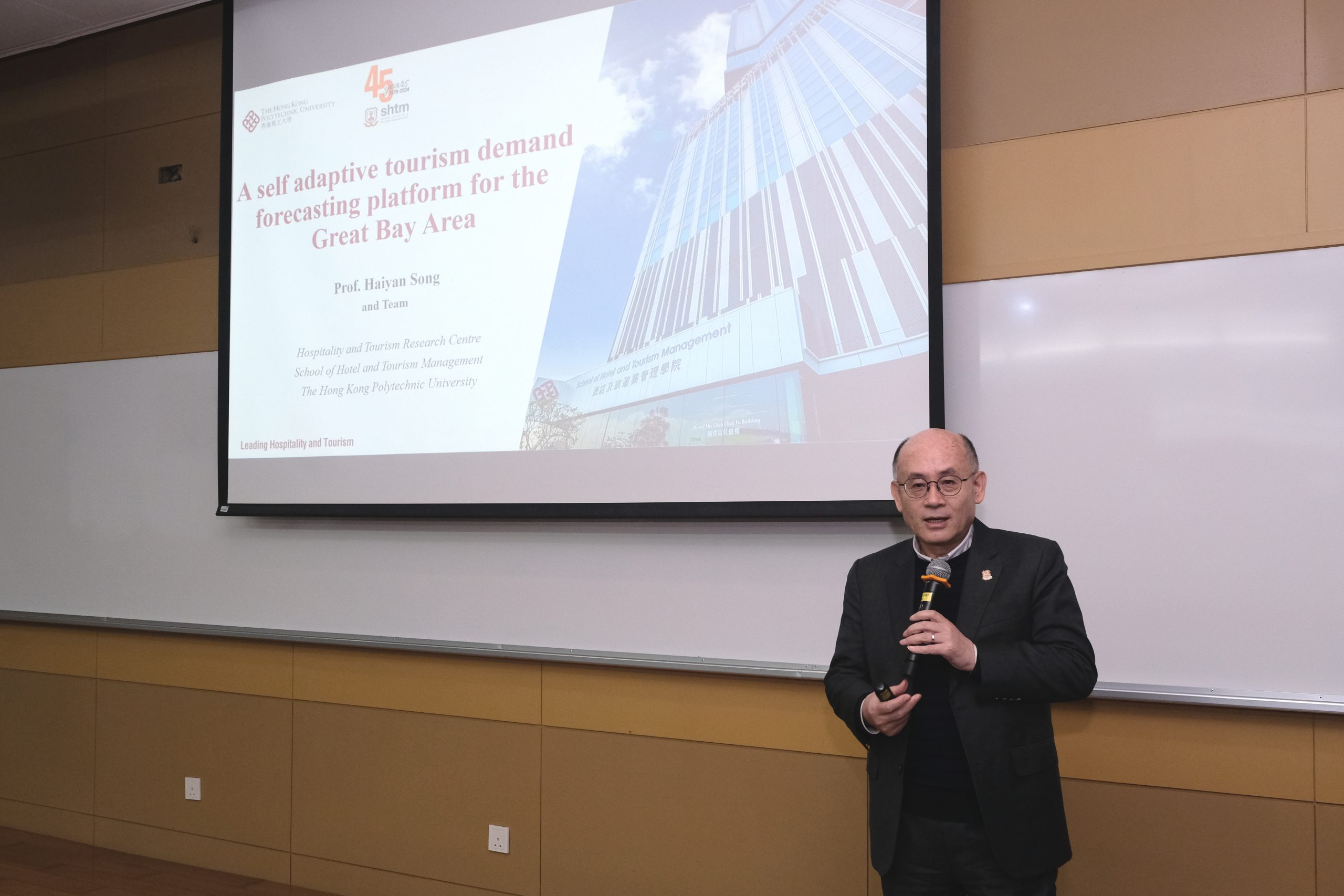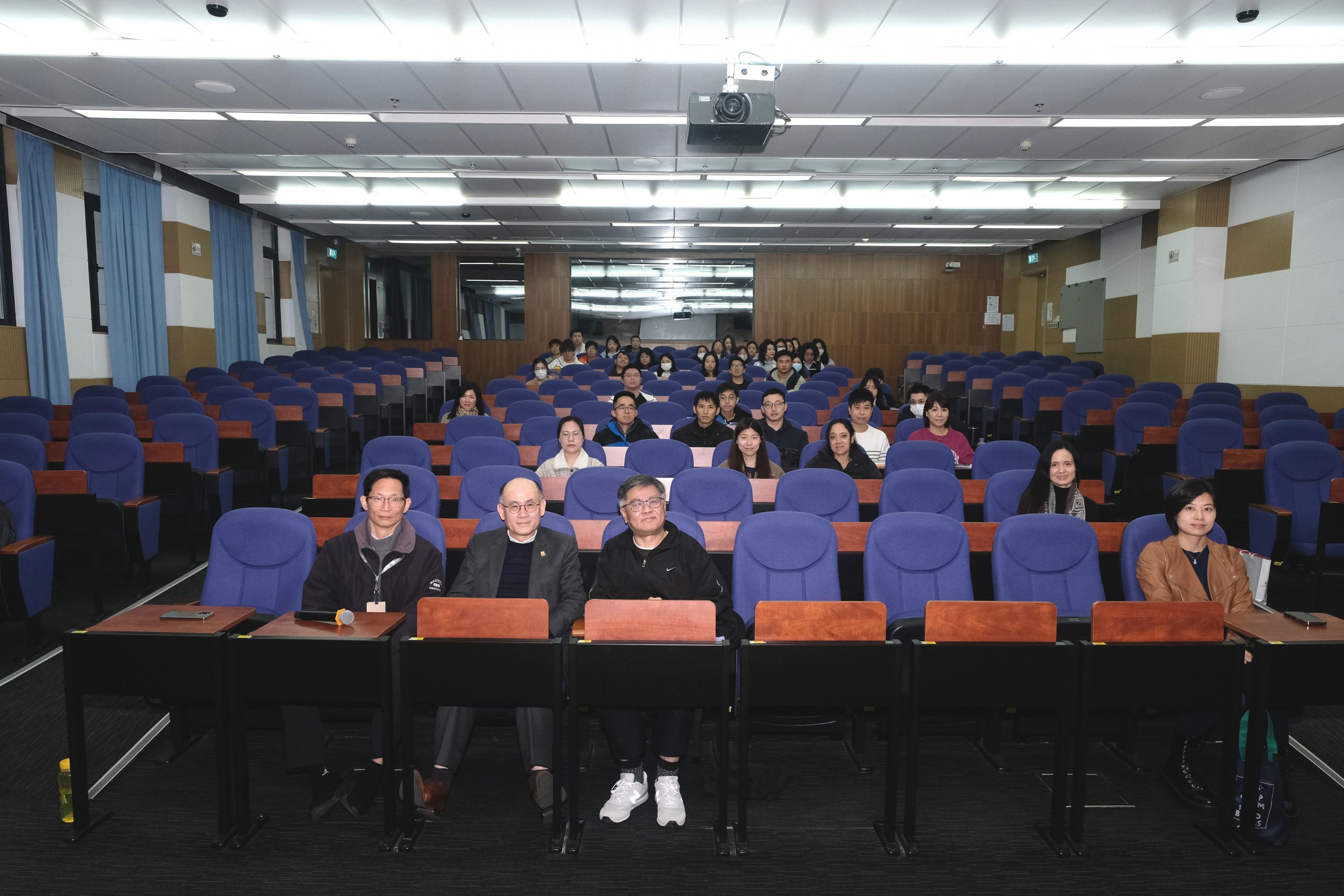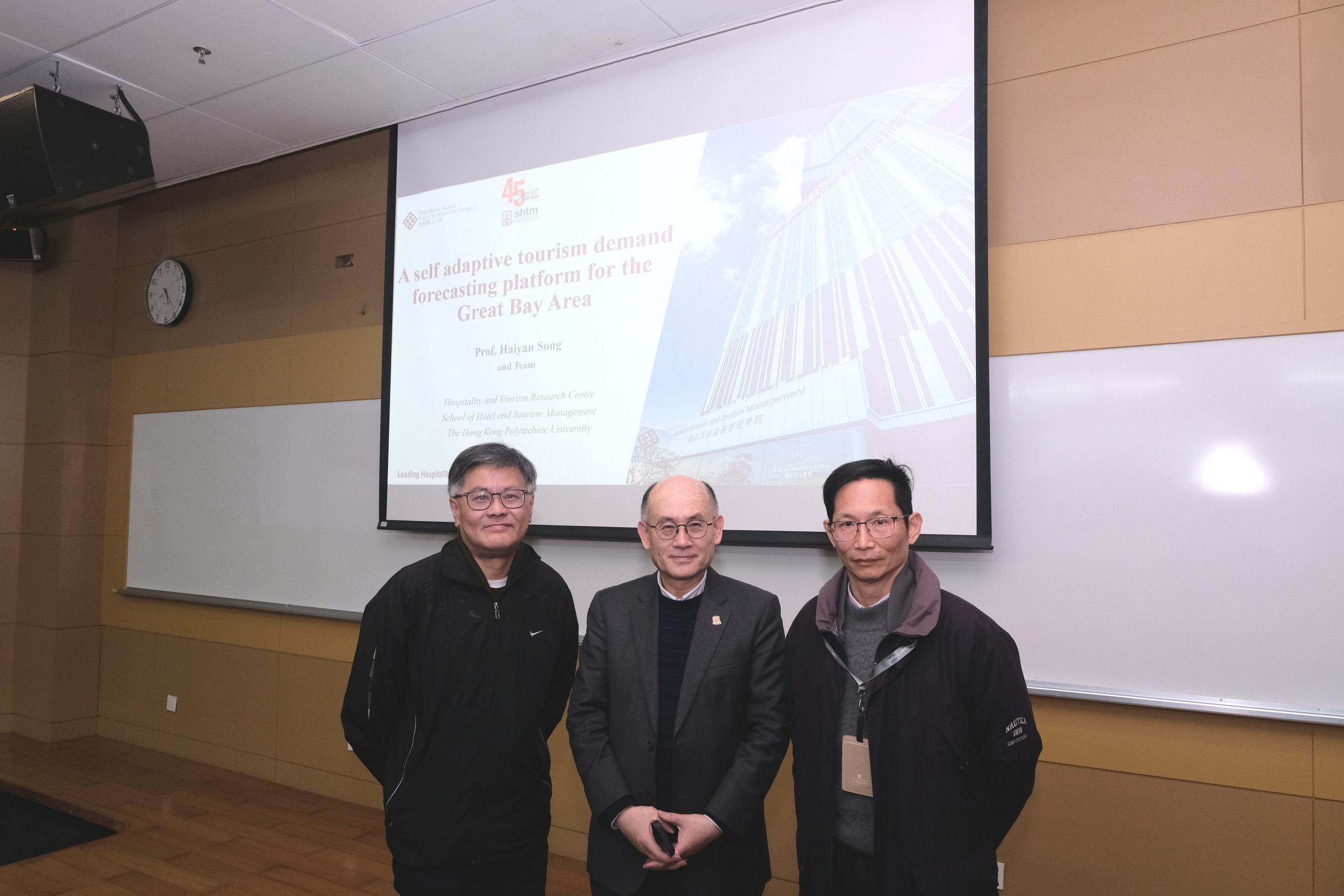The Centre for Macau Studies of the University of Macau held a lecture titled “The First Self-adaptive Platform for Tourism Demand Forecasts Across the Greater Bay Area” on March 1, 2024, inviting Professor Song Haiyan, the Associate Dean and Director of Research Centre for Digital Transformation of Tourism of the Hong Kong Polytechnic University, gave the lecture.
Professor Song said that demand forecasting is very important for the tourism industry, as it can help policymakers and practitioners formulate corresponding tourism strategies. However, after experiencing the impact of the COVID-19 epidemic on the tourism industry, traditional forecasting models have shown poor predictive power for large-scale emergencies. In this context, his team believes that forecast model that can self-adjust in response to crises and environments will be an important research direction. In response to this research direction, the “self-adaptive platform for tourism demand forecasts across the Greater Bay Area” is built.
The “self-adaptive platform for tourism demand forecasts across the Greater Bay Area” combines traditional econometrics and artificial intelligence model forecasts to provide sentiment analysis and scenario forecasts on the number of visitor arrivals in Greater Bay Area cities from different markets. In addition to long-term (five-year) forecasts, the system can also provide short-term forecasts, namely monthly forecasts for Hong Kong and Macao and annual forecasts for other cities, based on monthly updated data for Hong Kong and Macao, as well as annually updated data for other cities in the Greater Bay Area.
Currently, certain functions of the platform are available to the public for free use. Professor Song demonstrated those functions in the lecture and answered questions from the audience.




